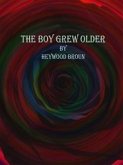Everyone who knew Rome fifteen or twenty years ago must remember Miss Belmont. She lived in the Palazzo Sebastiani, a merry little old Englishwoman, the business, the passion, of whose existence it was to receive. All the rooms of her vast apartment on the piano nobile were arranged as reception-rooms, even the last of the suite, in the corner of which a low divan, covered by a Persian carpet, with a prie-dieu beside it, and a crucifix attached to the wall above, was understood to serve at night as Miss Belmont’s bed.
Bitte wählen Sie Ihr Anliegen aus.
Rechnungen
Retourenschein anfordern
Bestellstatus
Storno









